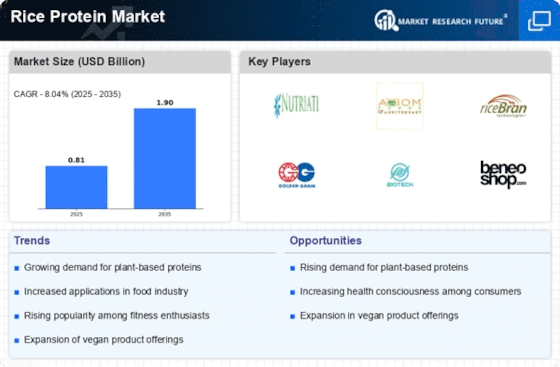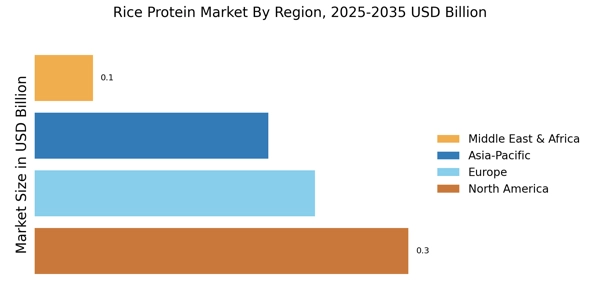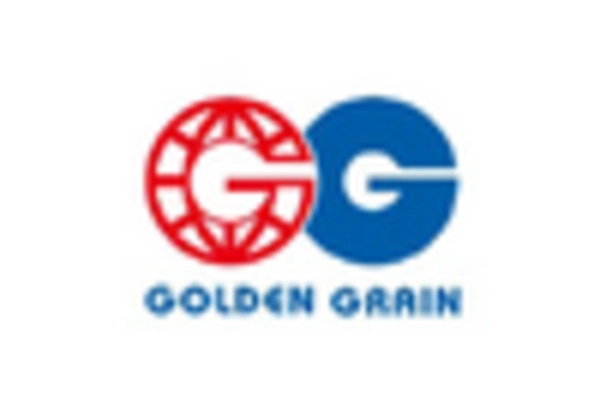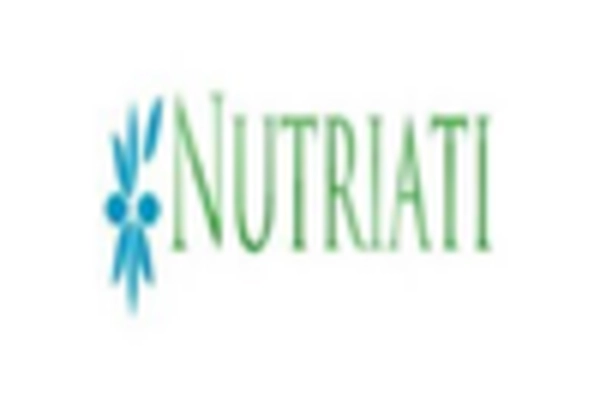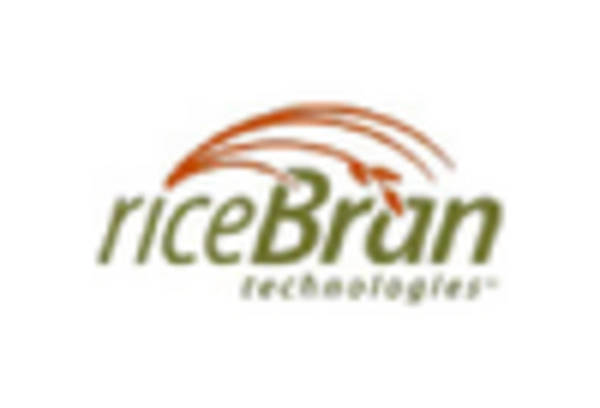Rising Health Consciousness
The increasing awareness of health and wellness among consumers appears to be a driving force in the Rice Protein Market. As individuals seek healthier dietary options, the demand for plant-based proteins, including rice protein, is likely to rise. This trend is supported by data indicating that the plant-based protein market is projected to grow at a compound annual growth rate of over 7% in the coming years. Consumers are increasingly opting for rice protein due to its hypoallergenic properties and digestibility, making it an appealing choice for those with dietary restrictions. The Rice Protein Market is thus positioned to benefit from this shift towards healthier eating habits, as more people incorporate rice protein into their diets for its nutritional benefits.
Innovations in Food Products
Innovations in food product formulations are playing a crucial role in shaping the Rice Protein Market. Manufacturers are increasingly incorporating rice protein into a variety of food products, including protein bars, beverages, and meat alternatives. This diversification is driven by consumer demand for high-protein, low-allergen options. Recent market analysis indicates that the protein bar segment, which often utilizes rice protein, is expected to witness a growth rate of approximately 8% annually. As food technology advances, the ability to create appealing and nutritious products using rice protein is likely to enhance its market presence, thereby contributing to the overall expansion of the Rice Protein Market.
Growth in Vegan and Vegetarian Diets
The surge in the adoption of vegan and vegetarian diets is significantly influencing the Rice Protein Market. As more individuals choose to eliminate animal products from their diets, the demand for plant-based protein sources is expected to increase. Rice protein, being a complete protein source, is particularly attractive to those following these dietary patterns. Market data suggests that the number of people identifying as vegan has increased by over 300% in recent years, indicating a substantial shift in consumer preferences. This trend is likely to continue, further propelling the growth of the Rice Protein Market as manufacturers respond to the rising demand for plant-based protein alternatives.
Sustainability and Environmental Concerns
Sustainability and environmental concerns are becoming increasingly prominent in consumer decision-making, which is positively impacting the Rice Protein Market. As consumers become more aware of the environmental impact of their food choices, there is a growing preference for sustainable protein sources. Rice protein, being derived from a renewable resource, aligns well with these values. Data suggests that plant-based proteins generally have a lower carbon footprint compared to animal-based proteins, making rice protein an attractive option for environmentally conscious consumers. This shift towards sustainability is likely to drive further growth in the Rice Protein Market as brands emphasize their commitment to eco-friendly practices.
Expansion of Nutritional Supplements Market
The expansion of the nutritional supplements market is significantly influencing the Rice Protein Market. As consumers increasingly seek dietary supplements to enhance their health and fitness, rice protein is gaining traction as a preferred ingredient. The nutritional supplements market is projected to grow at a compound annual growth rate of around 6%, with protein supplements being a key segment. Rice protein's versatility and compatibility with various dietary needs make it a popular choice among fitness enthusiasts and health-conscious individuals. This trend is expected to bolster the Rice Protein Market as more consumers incorporate rice protein supplements into their daily routines.


